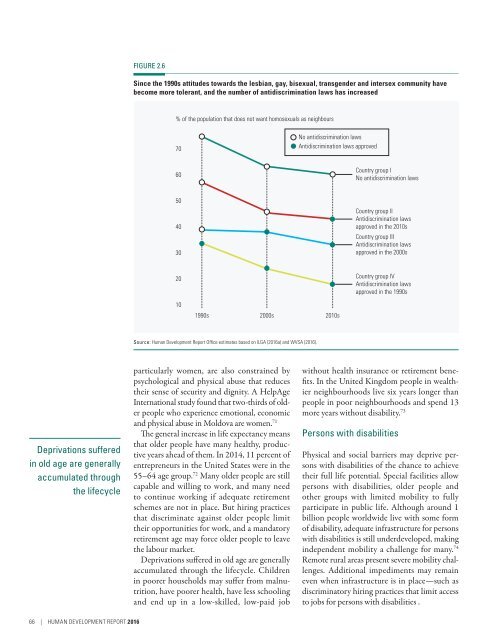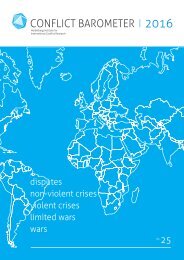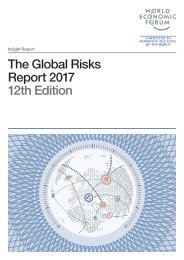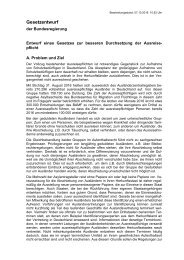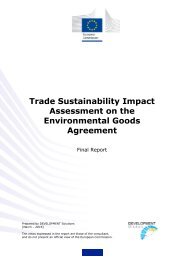Human Development Report 2016
6Tyccfrzw
6Tyccfrzw
You also want an ePaper? Increase the reach of your titles
YUMPU automatically turns print PDFs into web optimized ePapers that Google loves.
FIGURE 2.6<br />
Since the 1990s attitudes towards the lesbian, gay, bisexual, transgender and intersex community have<br />
become more tolerant, and the number of antidiscrimination laws has increased<br />
% of the population that does not want homosexuals as neighbours<br />
70<br />
No antidiscrimination laws<br />
Antidiscrimination laws approved<br />
60<br />
Country group I<br />
No antidiscrimination laws<br />
50<br />
40<br />
30<br />
Country group II<br />
Antidiscrimination laws<br />
approved in the 2010s<br />
Country group III<br />
Antidiscrimination laws<br />
approved in the 2000s<br />
20<br />
10<br />
1990s 2000s 2010s<br />
Country group IV<br />
Antidiscrimination laws<br />
approved in the 1990s<br />
Source: <strong>Human</strong> <strong>Development</strong> <strong>Report</strong> Office estimates based on ILGA (<strong>2016</strong>a) and WVSA (<strong>2016</strong>).<br />
Deprivations suffered<br />
in old age are generally<br />
accumulated through<br />
the lifecycle<br />
particularly women, are also constrained by<br />
psychological and physical abuse that reduces<br />
their sense of security and dignity. A HelpAge<br />
International study found that two-thirds of older<br />
people who experience emotional, economic<br />
and physical abuse in Moldova are women. 71<br />
The general increase in life expectancy means<br />
that older people have many healthy, productive<br />
years ahead of them. In 2014, 11 percent of<br />
entrepreneurs in the United States were in the<br />
55–64 age group. 72 Many older people are still<br />
capable and willing to work, and many need<br />
to continue working if adequate retirement<br />
schemes are not in place. But hiring practices<br />
that discriminate against older people limit<br />
their opportunities for work, and a mandatory<br />
retirement age may force older people to leave<br />
the labour market.<br />
Deprivations suffered in old age are generally<br />
accumulated through the lifecycle. Children<br />
in poorer households may suffer from malnutrition,<br />
have poorer health, have less schooling<br />
and end up in a low-skilled, low-paid job<br />
without health insurance or retirement benefits.<br />
In the United Kingdom people in wealthier<br />
neighbourhoods live six years longer than<br />
people in poor neighbourhoods and spend 13<br />
more years without disability. 73<br />
Persons with disabilities<br />
Physical and social barriers may deprive persons<br />
with disabilities of the chance to achieve<br />
their full life potential. Special facilities allow<br />
persons with disabilities, older people and<br />
other groups with limited mobility to fully<br />
participate in public life. Although around 1<br />
billion people worldwide live with some form<br />
of disability, adequate infrastructure for persons<br />
with disabilities is still underdeveloped, making<br />
independent mobility a challenge for many. 74<br />
Remote rural areas present severe mobility challenges.<br />
Additional impediments may remain<br />
even when infrastructure is in place — such as<br />
discriminatory hiring practices that limit access<br />
to jobs for persons with disabilities .<br />
66 | HUMAN DEVELOPMENT REPORT <strong>2016</strong>


